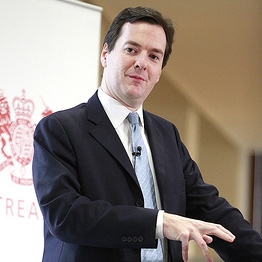NHS to receive £3.8bn funding boost from next year

The NHS in England will receive an above inflation funding boost of £3.8bn annually from next year, which NHS England has promised will partly go towards stabilising GP services.
But the additional funding from the Treasury – which is the first step to meeting the pledge to increase the NHS budget by £8bn by 2020 – comes as certain services, including public health and medical education budgets, have been removed from the protected budget ring-fence.
GP leaders have said that the decision to frontload the funding is ‘significant’, but said that the funding should not be geared towards providing seven-day services that patients ‘don’t want’.
However, the Government will expect the NHS to provide full seven-day services in return for the additional investment, and NHS England has already pledged to make £22bn in efficiency savings in return,
Prime Minister David Cameron has pledged to ring-fence NHS funding, but this only covers NHS England’s budget, which critics, including Dr Mark Porter of the BMA, have called short sighted.
Cuts to public health services like smoking cessation and sexual health clinics have already begun to bite and could be more costly for the NHS in future.
NHS England chief executive Simon Stevens has said: ‘This settlement is a clear and highly welcome acceptance of our argument for frontloaded NHS investment. It will help stabilise current pressures on hospitals, GPs, and mental health services, and kick start the NHS Five Year Forward View’s fundamental redesign of care. In the context of constraints on overall public spending, our case for the NHS has been heard and actively supported.’
Dr Richard Vautrey, deputy chair of the GPC, said: ’The key is how much comes to general practice and what strings are attached to it. But we need to be absolutely clear that there are big calls on funding already, just in terms of national insurance rises, indemnity rises, CQC fee rises, let alone funding to shore up the current workload pressures that are in general practice.
’We also need to see any new funding prioritised on the current core service which is under significant strain, and not wasting precious NHS funding paying for routine weekend appointments that increasingly patients report they don’t want.’
Dr Maureen Baker, chair of the RCGP, said: ’We welcome the Government’s decision to meet the call made by NHS chief executive Simon Stevens for major new investment in our health service.
’It is particularly significant that ministers have decided to front load the new investment, as was urgently requested by Mr Stevens – and we hope the injection of new resources will mean that NHS England’s ground-breaking vision for a sustainable NHS, the Five Year Forward View, can quickly now become a reality.’
The remaining investment will see smaller increases in 2017/18 (£1.5bn), 2018/19 (£0.5bn) and 2019/20 (£0.9bn), according to HSJ.
Early reports indicate the remaining £1.7bn increase will be made in the final year to meet any remaining costs from fully implementing seven-day services, which Jeremy Hunt has said ‘all practices must ensure they offer by 2020’.
Visit Pulse Reference for details on 140 symptoms, including easily searchable symptoms and categories, offering you a free platform to check symptoms and receive potential diagnoses during consultations.









